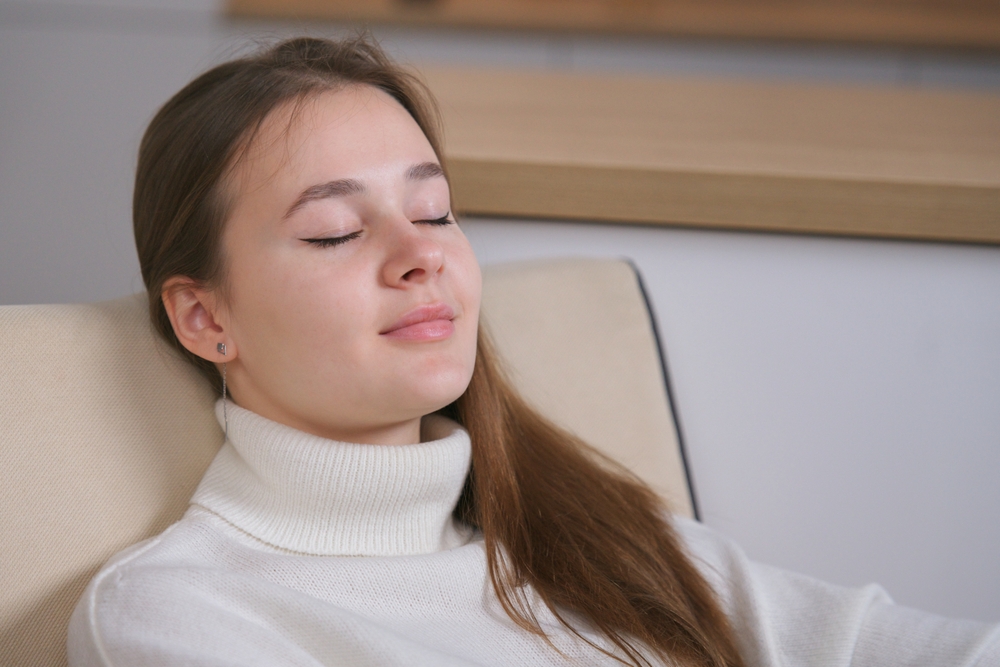In today’s busy world, it feels like stress is just part of the package. Between work, family, technology overload, and endless to-do lists, it can be hard to find a moment to just breathe. While there are lots of ways to manage stress—exercise, therapy, meditation—many people are exploring something a little different: hypnosis for daily stress.
At Focused Mind Hypnosis, we specialize in helping people tap into their subconscious to unlock calm, clarity, and focus. But what is relaxation hypnotherapy really like? Can it actually help you unwind after a long day? Can you use it every day? Let’s break it down in a down-to-earth, realistic way.
What Is Hypnosis for Daily Stress?
Hypnosis is often misunderstood thanks to movies and stage shows, but in reality, it’s not about clucking like a chicken or giving up control of your mind. At its core, hypnosis is a natural, focused state of awareness—kind of like when you’re daydreaming or deeply absorbed in a good book.
Hypnosis for daily stress uses this relaxed state to access your subconscious mind. With the help of a trained hypnotherapist or through self-hypnosis, you can reframe stressful thoughts, reinforce calming patterns, and create space for mental and physical relaxation.
It’s not magic, and it’s not guaranteed to work for everyone. But for many, it’s a gentle, supportive tool that fits nicely into a wellness routine.
What Happens in a Relaxation Hypnotherapy Session?
A typical relaxation hypnotherapy session at Focused Mind Hypnosis is customised to your needs, but it usually follows a simple and calming process:
1. Initial Conversation
First, we talk. We’ll ask about your stress levels, your lifestyle, and what’s been feeling heavy lately. This helps us tailor the session to your goals.


2. Guided Relaxation
Next, you’ll get comfortable—usually lying back in a chair or on a couch. We’ll guide you through deep breathing and a body scan to help you relax physically.
3. Hypnotic Induction
This is where the hypnotherapy part kicks in. You’ll be guided into a relaxed and focused state. You’re still completely aware of your surroundings, but your attention turns inward.


4. Suggestion Work
During this time, your hypnotherapist may offer gentle, supportive suggestions designed to help you let go of tension, shift your perspective on stress, or visualize calm, peaceful settings.
5. Reawakening and Debrief
Most people feel incredibly refreshed—like they just woke up from the best nap ever.

Can I Use Hypnosis Every Day to Unwind?
Absolutely! One of the best things about hypnosis for daily stress is that it’s flexible. You can do guided sessions with a practitioner when you need a reset, or you can learn simple self-hypnosis techniques to use on your own every day.
Many people use hypnosis as part of their evening routine to transition from a busy day into a restful night. Some find it helpful in the morning to set a calm tone for the day. Like any wellness tool, consistency matters. You may not feel dramatic changes after one session, but over time, you might notice:
- A calmer reaction to everyday stressors
- Less mental chatter
- Improved focus and mood
- Better sleep
- A deeper connection to your breath and body
The best part? It’s a no-pressure practice. Even if you’re skeptical, you can approach hypnosis with curiosity and see what works for you.
How Does Self-Hypnosis Work?
One of the most common questions we hear is: Can I hypnotize myself?
The answer is yes—self-hypnosis is a real and accessible practice. It’s kind of like meditation, but with a specific intention or goal. While formal training helps, you can absolutely get started on your own with some basic steps:
Step 1: Find a Quiet Space
Pick a time and place where you won’t be interrupted. Turn off your phone and get cozy.
Step 2: Set an Intention
Decide what you want to focus on. Maybe it’s calming your mind, releasing tension, or winding down for sleep.
Step 3: Relax Your Body
Close your eyes, take deep breaths, and slowly relax each part of your body—from your toes to your scalp.
Step 4: Use a Script or Visualization
Repeat calming phrases in your mind, like “I am safe,” “I am letting go,” or “I am peaceful.” You can also imagine a calm, happy place—like a beach, forest, or mountain retreat.
Step 5: Stay for a While
Stay in that relaxed state for 5–15 minutes, or longer if you’d like. Then gently bring yourself back, take a few deep breaths, and stretch.
With regular practice, self-hypnosis can become a reliable, comforting part of your daily stress toolkit.
Is Hypnosis Right for Me?
That depends. Like any alternative therapy, relaxation hypnotherapy isn’t a cure-all. It’s not a replacement for medical treatment, mental health counseling, or prescribed medication. But it can be a wonderful complementary practice—especially if you:
- Struggle to switch off at the end of the day
- Feel constantly overwhelmed
- Experience racing thoughts or tightness in your body
- Are open to trying new relaxation methods
- Enjoy visualization or guided meditation
Everyone’s experience is different. Some people feel deeply relaxed and see quick changes; others may need several sessions to notice a shift. The key is to go in with an open mind and realistic expectations.

Common Misconceptions About Hypnosis
Let’s clear up a few myths:
“Will I lose control?”
No. You’re always in control during hypnosis. You can open your eyes, move around, or stop the session anytime.
“Will I fall asleep?”
Maybe, but that’s okay! Falling asleep just means you were super relaxed. You can still benefit from the session.
“Is hypnosis scientifically proven?”
Hypnotherapy is considered a form of complementary therapy. There’s some evidence showing it may help with relaxation, anxiety, and sleep—but results vary, and it’s not a replacement for medical care.
“Is it the same as meditation?”
They’re similar but not identical. Meditation focuses on awareness without judgment, while hypnosis usually includes specific suggestions or goals.
Making Hypnosis Part of Your Daily Life
You don’t have to overhaul your whole routine to enjoy the benefits of hypnosis for daily stress. Start small:
- Use audio recordings before bed
- Book a hypnotherapy session once a week
- Practice self-hypnosis during your lunch break
- Create a calming environment with dim lights, essential oils, and quiet music
At Focused Mind Hypnosis, we believe in making hypnotherapy approachable, practical, and supportive. Whether you’re totally new or looking to deepen your practice, we’re here to help you explore what’s possible—without any pressure or gimmicks.
Final Thoughts
Stress is part of life, but it doesn’t have to rule your life. If you’re looking for a gentle, natural way to unwind, relaxation hypnotherapy might be worth a try. With consistency, curiosity, and an open heart, you might find that hypnosis for daily stress becomes your secret weapon for a calmer, more centred you.
Whether you’re seeing a professional or trying out self-hypnosis, remember: this is your practice. Go at your own pace. Trust your instincts. And most importantly—breathe.
Ready to Explore Hypnosis for Yourself?
Visit Focused Mind Hypnosis to book a session, explore free resources, or learn more about how hypnotherapy can support your daily stress management. We’re here to help you reconnect with your calm, one breath at a time.

